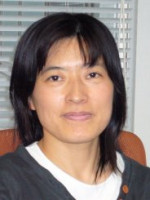Longevity, Ageing and Long-term Care
Healthcare Systems
Healthy Ageing & Longevity
Public Health & Health Policy
AXA Chairs
Japan
2012.10.31
AXA Chair on Health and Human Security
The newly appointed Chair Holder is Prof. Manami Inoue. Awarded by authoritative academic societies in Japan (including the Japan Epidemiological Association and the Japan Cancer Association), she has worked in many prestigious institutions in Japan and gained in-depth knowledge of her country’s longevity phenomenon.
The overall objective of her research is to gain a firm grasp of the interplay of selected risk factors in the burden of disease and injury in Japan over the past twenty years. Using comparable methodology and measurement metrics, she will study the distributions of risks across population subgroups based on age, sex, geography and socio-economic status, with a particular focus on aging.
Her results will be helpful for informing policies and programs that aim either to prevent disease and injury or to design responses to current natural disasters, such as earthquakes and their aftermath in Japan, and their effects on health.
Her findings will therefore be relevant for doctors, public health professionals, insurers and government decision makers. They will also be of interest to international organizations such as the WHO, with which University researchers have multiple ties, in generally helping to plan responses to major risks.
Understanding the Secret of Longevity to improve Human Security
To add or modify information on this page, please contact us at the following address: community.research@axa.com

Manami
INOUE
Institution
The University of Tokyo
Country
Japan
Nationality
Japanese
Related articles
Longevity, Ageing and Long-term Care
Societal Challenges
Demography
Emerging Market
Income & Wealth
Inequality & Poverty
Joint Research Initiative
United States
2018.04.30
Mortality: towards reliable estimates in developing countries
Getting the most out of unreliable data, and actuarial applications Indeed, by attempting to prove that the mortality datasets available... Read more

Magali
BARBIERI
University of California - Berkeley
Women's Health
Healthcare Systems
Pregnancy & Maternal Health
Public Health & Health Policy
Emergency Care & Crisis
Post-Doctoral Fellowship
United Kingdom
2019.08.31
Towards timely and quality access to emergency obstetric care in Sub-Saharan Africa
At least four out of ten women develop unpredictable complications during pregnancy, childbirth and/or after delivery. Globally, over 300,000 women... Read more

Aduragbemi
BANKE-THOMAS
